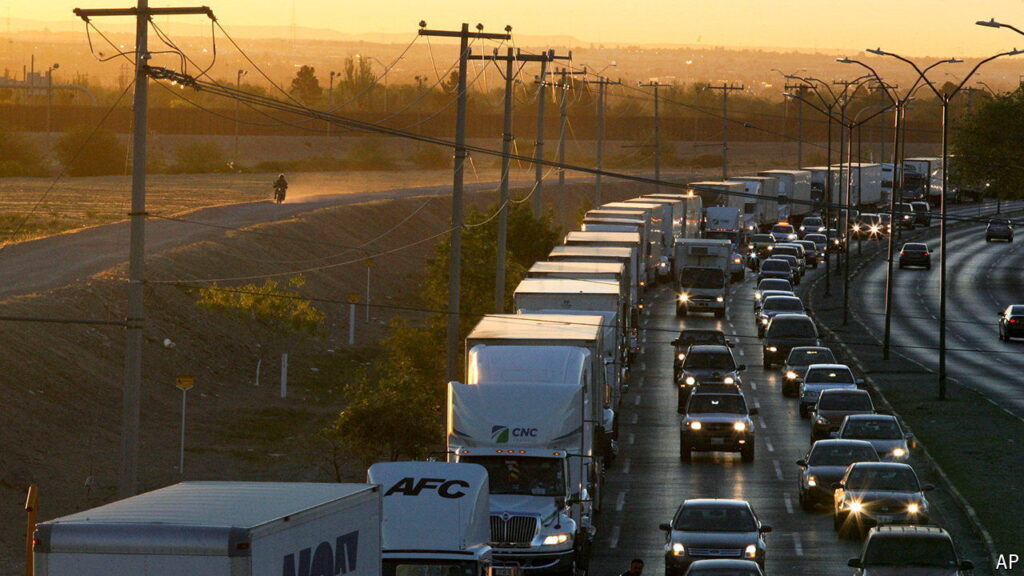The Tijuana two-step refers to the process of importing goods from China into Mexico, where they are then separated into smaller packages and driven back to America without paying any tariffs. This has become a common practice at the Otay Mesa crossing, where trucks are now lining up to enter Mexico instead of the other way around.
The Otay Mesa crossing, located between California and Tijuana, is known for long queues of trucks trying to enter America. However, in recent times, the trucks at this border crossing have been waiting to get into Mexico instead. These trucks do not travel far once they enter Mexico, as they offload their shipping containers in warehouses just 15km south of the border.
The goods imported into Mexico are then separated into thousands of small packages and driven back to America. Despite the fact that these imports originate in China and are purchased in America, no tariffs are paid on them. This loophole in the system has allowed for the emergence of the Tijuana two-step, a process that takes advantage of differences in tariffs between countries.
The Tijuana two-step has raised concerns among trade experts and policymakers, who worry about its impact on international trade. By circumventing tariffs and other trade regulations, this practice could potentially distort the market and create unfair competition for businesses that follow the rules. Some have called for greater enforcement of trade regulations to prevent such abuses of the system.
Despite these concerns, the Tijuana two-step continues to be a lucrative business for those involved. The newly built warehouses in Mexico serve as a hub for importing goods from China, which are then distributed to various destinations in America. This process has streamlined the supply chain and reduced costs for businesses looking to import goods into the country.
The Tijuana two-step is just one example of the creative ways in which businesses are navigating the complexities of international trade. With globalization and advances in technology, companies are finding new ways to optimize their supply chains and reduce costs. However, it is essential for policymakers to remain vigilant and address any potential loopholes in the system to ensure fair and equitable trade practices.
In conclusion, the Tijuana two-step is a fascinating example of how businesses are adapting to the challenges of international trade. By taking advantage of differences in tariffs and regulations between countries, companies can optimize their supply chains and reduce costs. However, it is crucial for policymakers to monitor these practices and ensure that they do not distort the market or create unfair competition. Only by addressing these issues can we ensure a level playing field for businesses and promote fair and equitable trade practices.












